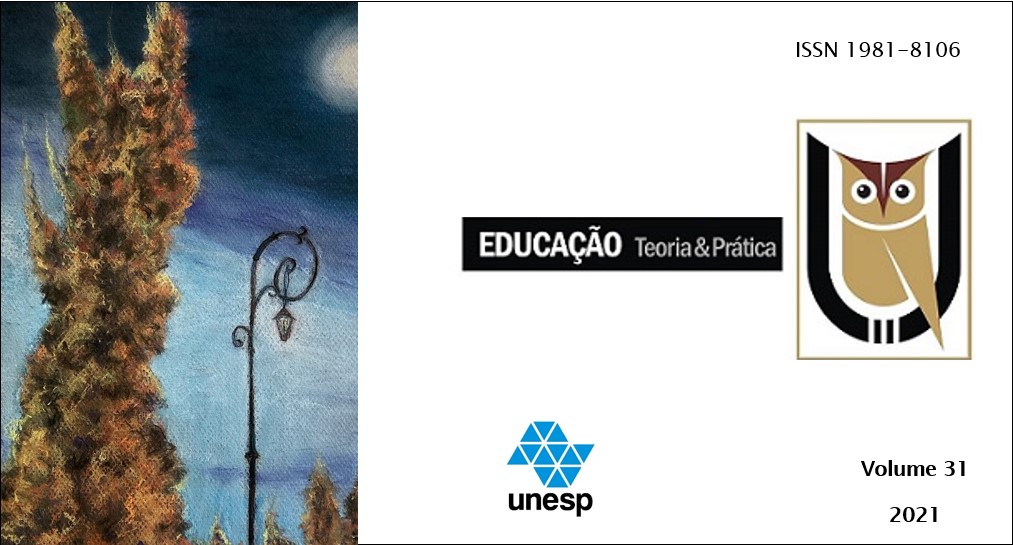Evasion from graduate school course in business management of a corporate University: student/employee perceptions
DOI:
https://doi.org/10.18675/1981-8106.v31.n.64.s13813Keywords:
Graduate School. Working Student. Digital Medias. Evasion. Distance Study.Abstract
The graduate school course in Business Management is a reality and innovation in the corporate education university of the federal public company researched. The course presents characteristics pursuant to Distance Education, such as distance in space and time and student autonomy. Regarding the student of this form of teaching, it is important to identify the reasons that led many of them to evade the course. Given the above, a research instrument was applied, whose general objective was to identify the reasons why the student, who is an employee of the company, evaded this course. The quantitative-qualitative instrument contained close questions with answers based on the Likert scale, for descriptive statistical inferential analysis, and an open question, where the discursive text analysis technique was used. It was evidenced that the reasons that resulted into the high number (41%) of evaded students in the course are related to: the conciliation of the time for the work activities and the necessity of the presence in the synchronous activities (classes via videoconference and tests); the need for a greater articulation of the corporate university of the company with the managers of the employees, in order to facilitate their participation in face-to-face activities; awareness regarding labor aspects, such as holidays and specificities of the company's reality, such as contingencies and strikes, among other factors.
References
ABED. Associação Brasileira de Educação a Distância. Censo EAD.BR: relatório analítico da aprendizagem a distância no Brasil 2016. Censo EAD.BR [livro eletrônico]/[organização] ABED – Associação Brasileira de Educação a Distância; Curitiba: InterSaberes. Disponível em: http://abed.org.br/censoead2016/Censo_EAD_2016_portugues.pdf. Acesso em: 15 ago. 2018.
BÓS, A. J. G. EpiInfo sem mistérios: um manual prático. Porto Alegre: EDIPUCRS.
Brasil. Lei nº 6.538 de 22 de junho de 1978. Disponível em: http://www.planalto.gov.br/ccivil_03/LEIS/L6538.htm. Acesso em: 1 out. 2018.
EBOLI, M. O papel das lideranças no êxito de um sistema de educação corporativa. In: Revista de Administração de Empresas. v. 45, n. 4, p. 118-122. 2005. Disponível em: http://bibliotecadigital.fgv.br/ojs/index.php/rae/article/viewFile/37316/36079. Acesso em: 30 set. 2018.
GIL, A. C. Como Elaborar Projetos de Pesquisa. 4. ed. São Paulo: Atlas, 2002.
MAIA, C.; MATTAR, J. ABC da EaD – A educação a distância hoje. 1. ed. São Paulo: Pearson Prentice Hall, 2007.
MORAES, R.; GALIAZZI, M. do C. Análise Textual Discursiva. Ijuí: UNIJUÍ, 2007.
VIEIRA, K. M.; DALMORO, M. Dilemas na Construção de Escalas tipo Likert: o número de itens e a disposição influenciam nos resultados? In: XXXII Encontro da ANPAD, 2008, Rio de Janeiro. Anais [...]. Rio de Janeiro: Anpad, 2008. Disponível em: http://www.anpad.org.br/admin/pdf/EPQ-A1615.pdf. Acesso em: 30 set. 2018.
Downloads
Published
How to Cite
Issue
Section
License
Authors who publish in this journal agree to the following terms:
a) Authors assign copyright to the journal, with the work simultaneously licensed under the Creative Commons Attribution License that allows sharing of the work with acknowledgment of authorship and publication in this journal.
b) The policy adopted by the Editorial Committee is to assign copyright only after a period of 30 months from the date of publication of the article. After this time, authors interested in publishing the same text in another work must send a letter to the Editorial Committee requesting the release of the assignment of copyright and wait for a response.
c) This journal provides public access to all its content, since this allows greater visibility and reach of published articles and reviews. For more information on this approach, visit the Public Knowledge Project, a project that developed this system to improve the academic and public quality of research, by distributing OJS as well as other software to support the public access publication system to academic sources. The names and email addresses on this website will be used exclusively for the purposes of the journal and will not be available for other purposes. This journal provides open any other party  This work is licensed under a Creative Commons License
This work is licensed under a Creative Commons License











